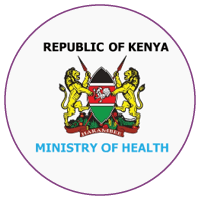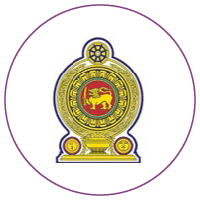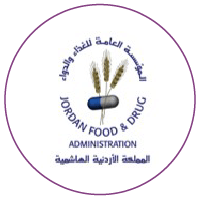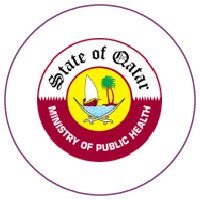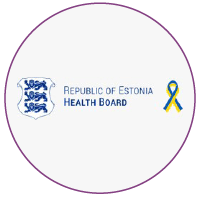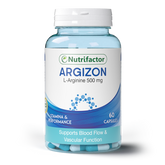Nutrifactor
Trending Now
Gluta fair + Extra-C Offer
مصنوعات کی معلومات Glutafair ۔Nutrifactor's Gluta Fair میں Glutathione اور وٹامن سی (Ascorbic acid) ہوتا ہے۔ ۔Glutathione ایک قدرتی مادہ ہے جو جسم کے تمام خلیوں، ٹشوز، اعضاء، نظاموں اور جسم میں پائے جانے والےمواد میں مختلف مقدار میں پایا جاتا ہے۔ یہ طاقتور...
- Rs.3,000
Rs.3,690- Rs.3,000
- Unit price
- per
Biotin Plus
پراڈکٹ کی معلومات نیو ٹریفیکڑ کا Biotin Plus بایوٹین اور فولک ایسڈ کا مجموعہ ہے۔ دونوں ضروری بی وٹامنز ہیں جو صحت کو بحال کرنے اور جسم کے نظام کو ریگولر کرنے میں مدد دیتے ہیں۔ یہ بالوں کی صحت بحال کرنے، دو منہ...
- From Rs.1,150
- From Rs.1,150
- Unit price
- per
Magnesium Glycinate | Magnizen
پراڈکٹ کی معلومات: نیوٹریفیکٹر کے Magnizen میں Magnesium Glycinate شامل ہے، جو کہ Magnesium کا ایک انتہائی مؤثر طریقے سے جسم کو دستیاب (highly bioavailable) ہونے والا سالٹ ہے جسے جسم مؤثر طریقے سے جذب اور استعمال کر سکتا ہے۔ چیلیٹڈ (chelated) شکل ہونے...
- From Rs.1,250
- From Rs.1,250
- Unit price
- per
Vitamax Women
پراڈکٹ کی معلومات: نیوٹریفیکٹر Vitamax Women ایک منفرد ملٹی وٹامن اور ملٹی منرل فارمولا ہے جو خواتین کی غذائی ضروریات کو پورا کرنے کے لیے اہم وٹامنز اور منرلز فراہم کرتا ہے۔ یہ توانائی کو بڑھانے، قوت مدافعت، دل، دماغ اور آنکھوں کی صحت...
- From Rs.1,200
- From Rs.1,200
- Unit price
- per
Nutri Collagen
پراڈکٹ کی معلومات نیوٹری فیکٹر کا نیوٹری کولیجن وٹامن سی اور بایوٹین کے ساتھ کولیجن کا مرکب ہے جو بالوں، جلد اور ناخنوں کی صحت کو فروغ دینے کے ساتھ ساتھ ہڈیوں کی مضبوطی اور جوڑوں، ٹینڈنز اور لیگامینٹس کی لچک کو برقرار رکھنے...
- Rs.1,650
- Rs.1,650
- Unit price
- per
Nutri Plum
پراڈکٹ کی معلومات: نیوٹریفیکٹر Nutri Plum ٹیبلٹ قدرتی پھلوں اور جڑی بوٹیوں کے عرقوں کا ایک منفرد امتزاج ہے جو راتوں رات قبض سے آرام دلانے کے لیے خاص طور پر تیار کیا گیا ہے۔ اس میں Senna Leaf Extract (20% سینوسائیڈز) موجود ہے...
- Rs.1,200
- Rs.1,200
- Unit price
- per
Tryception + Duron Plus Offer
مصنوعات کی معلومات Tryception: ۔Nutrifactor's Tryception، خاص طور پر مردوں کی جنسی صحت کو برقرار رکھنے کے لیے جامع مدد فراہم کرنے کے لیے تیار کیا گیا ہے۔ یہ مردوں کی تولیدی صحت کیلئے اہم غذائی اجزاء کا جدید ترین فارمولا ہے۔ ۔Tryception ۔20۔...
- Rs.3,090
Rs.3,680- Rs.3,090
- Unit price
- per
Daily Skincare Bundle
مصنوعات کی معلومات: Gencell Nutrifactor's Gencell جوان جلد، مضبوط بالوں اور چمکدار ناخنوں کو سہارا دینے کے لیے وٹامن سی اور بایوٹین کے ساتھ سپر کولیجن ٹائپ 1 اور 3 کا مجموعہ ہے۔ یہ جلد کی عمر بڑھنے کی علامات کو کم کرنے میں...
- Rs.4,780
Rs.6,630- Rs.4,780
- Unit price
- per
Nucal -K
Nutrifactor’s Nucal-K delivers a powerful blend of Calcium, Vitamin K1 & D3 to help maintain strong bones, flexible arteries, and healthy muscles. Calcium is essential for strong bones and teeth, forming the foundation of a healthy skeleton. Calcium deficiency may cause bone pain and...
- Rs.850
- Rs.850
- Unit price
- per
Collagatin Powder
Nutrifactor's Collagatin Powder delivers 6 g of collagen per serving, featuring Type I and Type III collagen sourced from marine origins. It provides hydrolyzed marine collagen peptides to support the body’s natural collagen production, which starts declining in 20s. Collagen supplementation helps keep skin...
- Rs.4,800
- Rs.4,800
- Unit price
- per
Bzolve Chewables
Your body prefers bioavailable nutrients, which means few or no enzymatic steps are required to convert them into a usable form. Nutrifactor’s Bzolve chewable tablets offer methylcobalamin, the most bioactive and readily absorbed form of vitamin B12. Genetic mutations, low stomach acid, reduced meat...
- Rs.850
- Rs.850
- Unit price
- per
Soy Protein Isolate
Nutrifactor’s Soy Protein Isolate Powder provides 22 g of soy protein per serving and delivers a complete amino acid profile to support fitness and nutritional goals. High in branched-chain amino acids (BCAAs), this advanced isolate is enriched with phytoestrogens and bioactive soy isoflavones like...
- Rs.7,600
- Rs.7,600
- Unit price
- per
Egg White Protein Powder
Nutrifactor's Egg White Protein Powder delivers an optimum 20 g of premium protein per serving. This pure, performance-driven source is ideal for athletes and fitness enthusiasts seeking fuel for lean muscle maintenance and recovery. Egg white protein has a complete amino acid profile and...
- Rs.14,200
- Rs.14,200
- Unit price
- per
Creatine Monohydrate Powder
پراڈکٹ کی معلومات نیوٹریفیکٹر کا کریٹین مونو ہائیڈریٹ پاؤڈر فی سرونگ 3.4 گرام کریٹین فراہم کرتا ہے جو پٹھوں کی نشوونما اور ورزش کے دوران تھکاوٹ کم کرنے میں مدد دیتا ہے۔ سائنسی طور پر یہ بات ثابت ہے کہ کریٹین سخت اور بھرپور...
- Rs.4,990
Rs.7,600- Rs.4,990
- Unit price
- per
Yumfolic Gummies
پراڈکٹ کی معلومات: نیوٹریفیکٹر Yumfolic میں Folic Acid شامل ہے، جس میں ہر گمی mcg 400 فراہم کرتی ہے۔ Folic Acid، جسے Vitamin B9 بھی کہا جاتا ہے، ایک B water soluble وٹامن ہے جو سیل ڈویژن، DNA synthesis اور سرخ خون کے خلیوں...
- Rs.990
- Rs.990
- Unit price
- per
Argizon
پراڈکٹ کی معلومات نیو ٹریفیکٹر کا Argizon کیپسول 500 ملی گرام L-Arginine فراہم کرتا ہے، جو ایک اہم امینو ایسڈ ہے اور پروٹین کی تشکیل، پٹھوں کی نشوونما، اور خلیاتی میٹابولزم میں اہم کردار ادا کرتا ہے۔ یہ ٹشوز کی مرمت، مدافعتی نظام کی...
- Rs.1,800
- Rs.1,800
- Unit price
- per
Latest Offers & Discounts
Gluta fair + Extra-C Offer
مصنوعات کی معلومات Glutafair ۔Nutrifactor's Gluta Fair میں Glutathione اور وٹامن سی (Ascorbic acid) ہوتا ہے۔ ۔Glutathione ایک قدرتی مادہ ہے جو جسم کے تمام خلیوں، ٹشوز، اعضاء، نظاموں اور جسم میں پائے جانے والےمواد میں مختلف مقدار میں پایا جاتا ہے۔ یہ طاقتور...
- Rs.3,000
Rs.3,690- Rs.3,000
- Unit price
- per
2 Bio Grow + 1 Bio Grow Free Offer
۔Bio Grow Syrup کاNutrifactor ۔۱۳ اہم غذائی اجزاء سے تیارشدہ ہے جو کہ بڑھتے بچوں کی صحتمندنشوونما کےلئے نہایت ضروری ہیں۔ اس میں مختلف وٹامنز جیسا کہ وٹامن اے، سی، ڈی، ای اور بی کمپلیکس شامل ہیں جو بچوں کی مکمل ذہنی اور جسمانی...
- From Rs.980
Rs.1,470- From Rs.980
- Unit price
- per
Tryception + Duron Plus Offer
مصنوعات کی معلومات Tryception: ۔Nutrifactor's Tryception، خاص طور پر مردوں کی جنسی صحت کو برقرار رکھنے کے لیے جامع مدد فراہم کرنے کے لیے تیار کیا گیا ہے۔ یہ مردوں کی تولیدی صحت کیلئے اہم غذائی اجزاء کا جدید ترین فارمولا ہے۔ ۔Tryception ۔20۔...
- Rs.3,090
Rs.3,680- Rs.3,090
- Unit price
- per
2 Biotin + Free Bonex-D Offer
مصنوعات کی معلومات: بایوٹین پلس: نیوٹری فیکٹر کا بایوٹین پلس بایوٹین اور فولک ایسڈ کا مجموعہ ہے۔ دونوں ضروری بی وٹامنز ہیں جو جسمانی نظام کی صحت بحال کرنے میں مدد دیتے ہیں۔ یہ بالوں کی صحت کو بحال کرنے، سپلٹ اینڈ اور بالوں...
- From Rs.2,300
Rs.2,990- From Rs.2,300
- Unit price
- per
Daily Skincare Bundle
مصنوعات کی معلومات: Gencell Nutrifactor's Gencell جوان جلد، مضبوط بالوں اور چمکدار ناخنوں کو سہارا دینے کے لیے وٹامن سی اور بایوٹین کے ساتھ سپر کولیجن ٹائپ 1 اور 3 کا مجموعہ ہے۔ یہ جلد کی عمر بڑھنے کی علامات کو کم کرنے میں...
- Rs.4,780
Rs.6,630- Rs.4,780
- Unit price
- per
2 Dermazon + Free Nutra-C Plus Offer
مصنوعات کی معلومات: Dermazon ۔Nutrifactor's Dermazon میں 24 اہم وٹامنز اور معدنیات کا مرکب ہوتا ہے جو جلد، بالوں اور ناخنوں کی صحت کے لیے بہت موثر اور معاون ہیں۔ اس میں اہم وٹامنز شامل ہیں جن میں وٹامن بی کمپلیکس، وٹامن ڈی، اے،...
- Rs.2,500
Rs.3,190- Rs.2,500
- Unit price
- per
Glass Skin Bundle
Nutri Collagen: Nutrifactor’s Nutri Collagen is a perfect blend of Collagen Peptides, Biotin, and Vitamin C, which promote youthful skin, strengthen hair & nails, and support joint health. Collagen Type I & III reduce wrinkles, restore firmness, and improve saggy skin by enhancing elasticity....
- From Rs.3,300
Rs.4,350- From Rs.3,300
- Unit price
- per
Family Pack (Vitamax + Free Bio Grow Syrup)
مصنوعات کی معلومات Vitamax: Nutrifactor's Vitamax مرد اور خواتین کے لیے خاص طور پر روزمرہ کی غذائی امداد کے لیے تیار کیے گئے ہیں اور ان میں ضروری غذائی اجزاء ہوتے ہیں جو توانائی کے تحول، مدافعتی نظام کو مضبوط بنانے اور ہڈیوں اور...
- From Rs.2,400
Rs.2,890- From Rs.2,400
- Unit price
- per
Men's Health Bundle
مصنوعات کی معلومات L-Arginine: ۔Nutrifactor's L-Arginine میں L-Arginine شامل ہے جو ایک ضروری امینو ایسڈ ہے۔ امینو ایسیڈ پروٹین کا بلڈنگ بلاک ہے ۔ یہ اتھلیٹک کارکردگی، پروٹین کی پیداوار، خون کی نالیوں کی صحت بحال کرنے میں مدد کرتا ہے اور مجموعی طور...
- Rs.4,330
Rs.5,330- Rs.4,330
- Unit price
- per
Weight Management Bundle
مصنوعات کی معلومات Lipozin: Nutrifactor's Lipozin میں Garcinia Cambogia کا عرق ہوتا ہے۔ یہ ایک ایسا پودا ہے جس میں Hydroxycitric Acid (HCA) ایک بنیادی بایو ایکٹیو جزو کے طور پر ہے جو بھوک کو کم کرنے اور صحت مند جسمانی وزن کو منظم...
- Rs.3,600
Rs.4,590- Rs.3,600
- Unit price
- per
60+ Countries
Wellness Blog
- Choosing a selection results in a full page refresh.

























